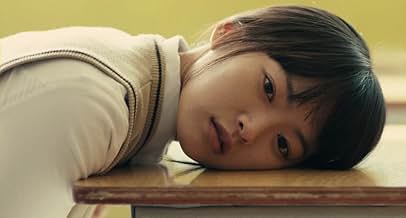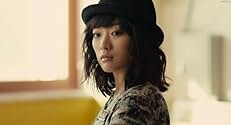Han Gong-Ju transfers to a new school to escape her past. It takes a long time for her troubled past to catch up with her but when it does, the revelation is devastating.Han Gong-Ju transfers to a new school to escape her past. It takes a long time for her troubled past to catch up with her but when it does, the revelation is devastating.Han Gong-Ju transfers to a new school to escape her past. It takes a long time for her troubled past to catch up with her but when it does, the revelation is devastating.
- Awards
- 29 wins & 14 nominations total
- Director
- Writer
- All cast & crew
- Production, box office & more at IMDbPro
Storyline
Did you know
- TriviaThis movie was inspired by the infamous Miryang gang rape case of 2004 in South Korea.
Featured review
I just finished watching this unique movie and - I have to put this out there before saying anything else - huge trigger warning for sexual assault and related traumatic events.
That said, and despite the trigger warning, one of the major strengths of the movie is its sensitive and non-exploitative treatment of what is, by all accounts, a harrowing and deeply painful subject. The writing, direction, editing, and performances are all commendable in how impressionably but carefully they expose rape culture and the costs it imposes on its victim-survivors. Indeed, the movie does what very few of its kind manage to do: to communicate the horrors and harms of rape and of its aftermath to audiences while avoiding catering to the male gaze and sexually objectifying its female characters, or exploiting its female characters in other ways purely for the male audiences' entertainment.
As a consequence, Su-jin Lee and his crew succeed, in a way that is rarely seen in cinema, to show just how hard coming out with a rape allegation is to victims of sexual assault and/or rape and how existing patriarchal institutions and agents all work together to ensure that this remains the reality for victim-survivors. And this is so, to a large part, due to the centering of the narrative on Han Gong-Ju's mental and social life; the award-worthy editing that shifts between Gong-Ju's present and past often without prior indication; and the emotionally laden performance by Chun-Woo-He (Hann Gong-Ju) who most often does not even have to speak to communicate her motivations and emotions to the viewer. Some would attribute these strengths to the particulars of Korean drama filmmaking in general but, as someone who's watched a number of classic Korean drama movies, I'd object to this and argue that due credit should be given to the creators of this unique and woefully under-watched and underrated classic.
In all, this is a movie that I would recommend to almost everyone for artistic, educational, sociological, entertainment, and moral reasons because, I guarantee, it has something for nearly all viewers, no matter their interests and motivations in movie-watching and in social and educational issues. The only negatives I noted in the movie include its promotion of alcohol and cigarette use and its plot development with regards to how the editing is used as a narrative tool (which takes a while to get used to while watching it).
That said, and despite the trigger warning, one of the major strengths of the movie is its sensitive and non-exploitative treatment of what is, by all accounts, a harrowing and deeply painful subject. The writing, direction, editing, and performances are all commendable in how impressionably but carefully they expose rape culture and the costs it imposes on its victim-survivors. Indeed, the movie does what very few of its kind manage to do: to communicate the horrors and harms of rape and of its aftermath to audiences while avoiding catering to the male gaze and sexually objectifying its female characters, or exploiting its female characters in other ways purely for the male audiences' entertainment.
As a consequence, Su-jin Lee and his crew succeed, in a way that is rarely seen in cinema, to show just how hard coming out with a rape allegation is to victims of sexual assault and/or rape and how existing patriarchal institutions and agents all work together to ensure that this remains the reality for victim-survivors. And this is so, to a large part, due to the centering of the narrative on Han Gong-Ju's mental and social life; the award-worthy editing that shifts between Gong-Ju's present and past often without prior indication; and the emotionally laden performance by Chun-Woo-He (Hann Gong-Ju) who most often does not even have to speak to communicate her motivations and emotions to the viewer. Some would attribute these strengths to the particulars of Korean drama filmmaking in general but, as someone who's watched a number of classic Korean drama movies, I'd object to this and argue that due credit should be given to the creators of this unique and woefully under-watched and underrated classic.
In all, this is a movie that I would recommend to almost everyone for artistic, educational, sociological, entertainment, and moral reasons because, I guarantee, it has something for nearly all viewers, no matter their interests and motivations in movie-watching and in social and educational issues. The only negatives I noted in the movie include its promotion of alcohol and cigarette use and its plot development with regards to how the editing is used as a narrative tool (which takes a while to get used to while watching it).
- How long is Han Gong-ju?Powered by Alexa
Details
- Release date
- Country of origin
- Language
- Also known as
- Хан Гон Джу
- Production company
- See more company credits at IMDbPro
Box office
- Gross worldwide
- $1,614,237
- Runtime1 hour 52 minutes
- Color
- Sound mix
Contribute to this page
Suggest an edit or add missing content






















